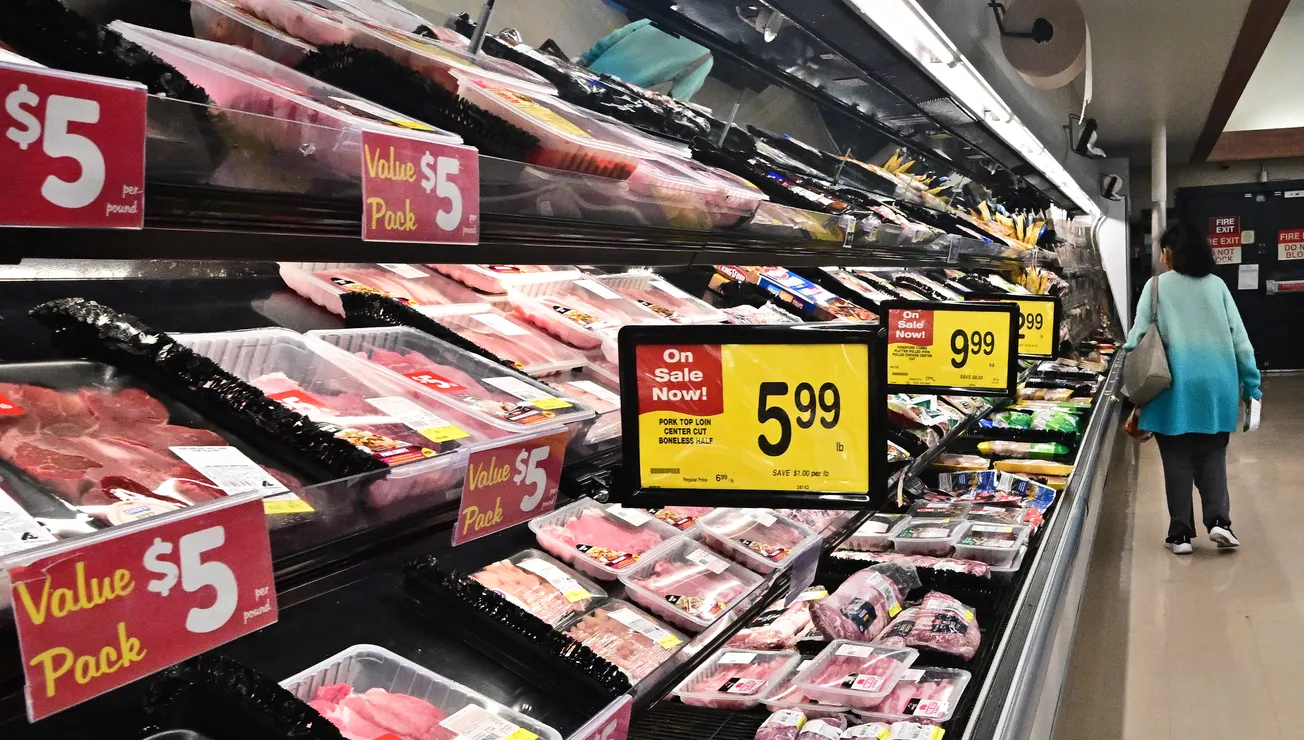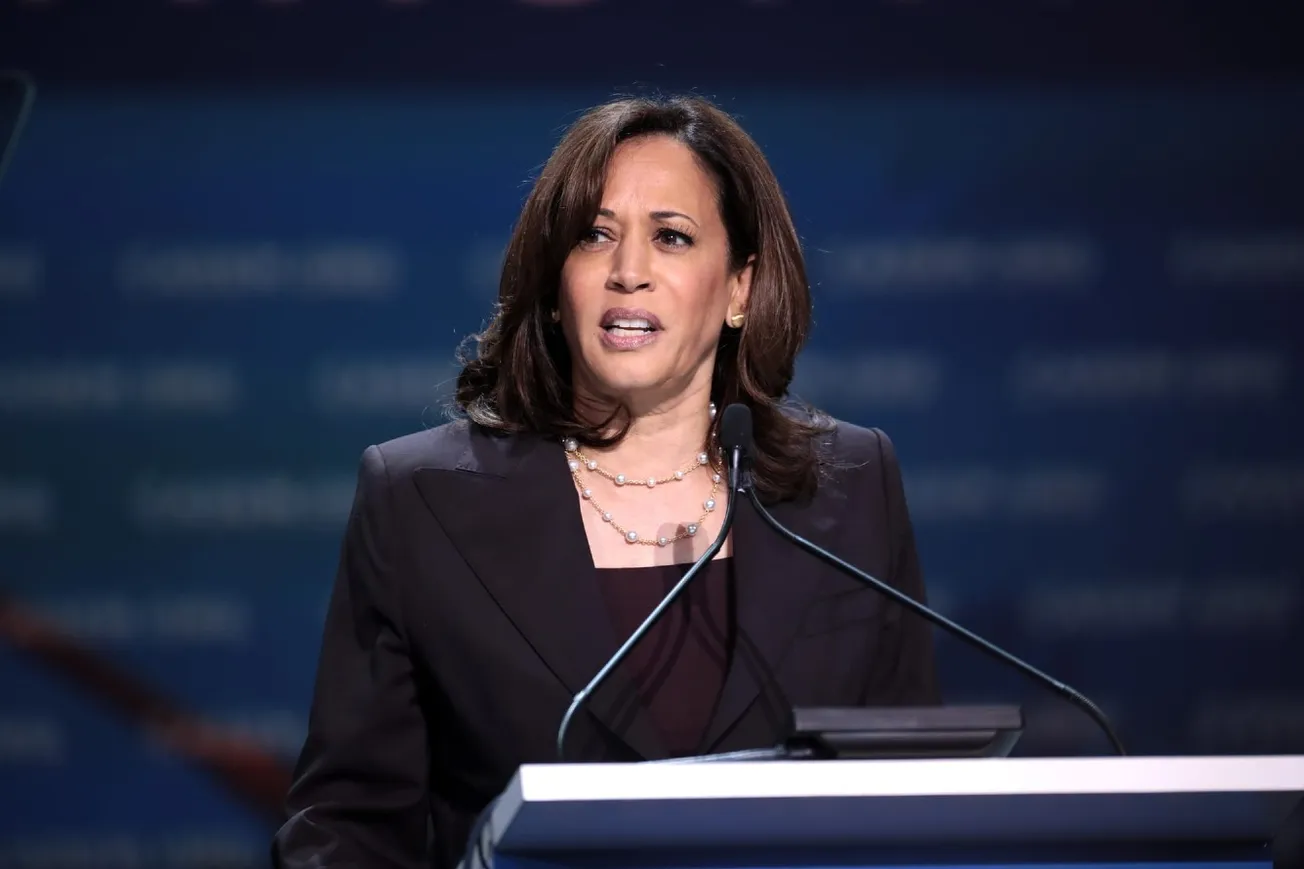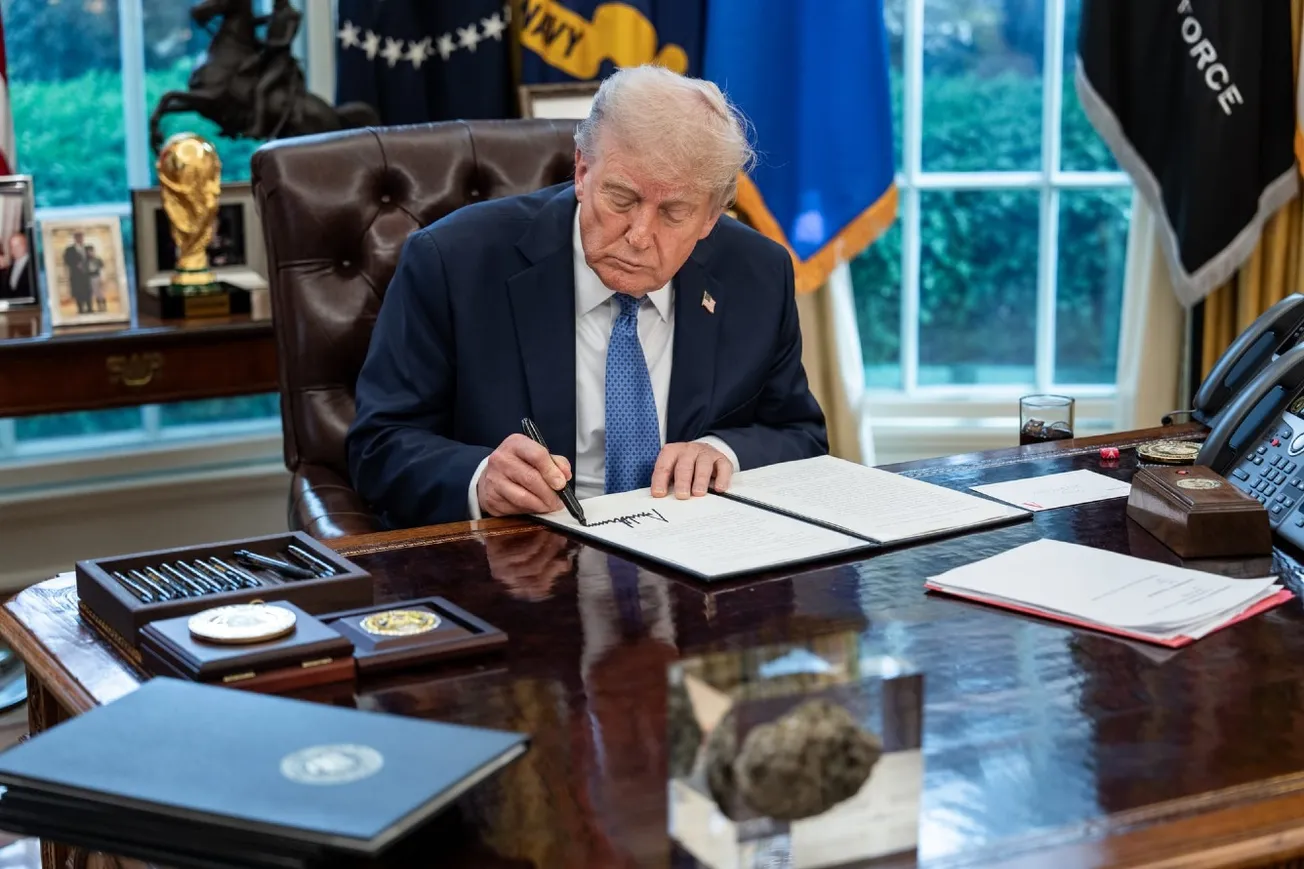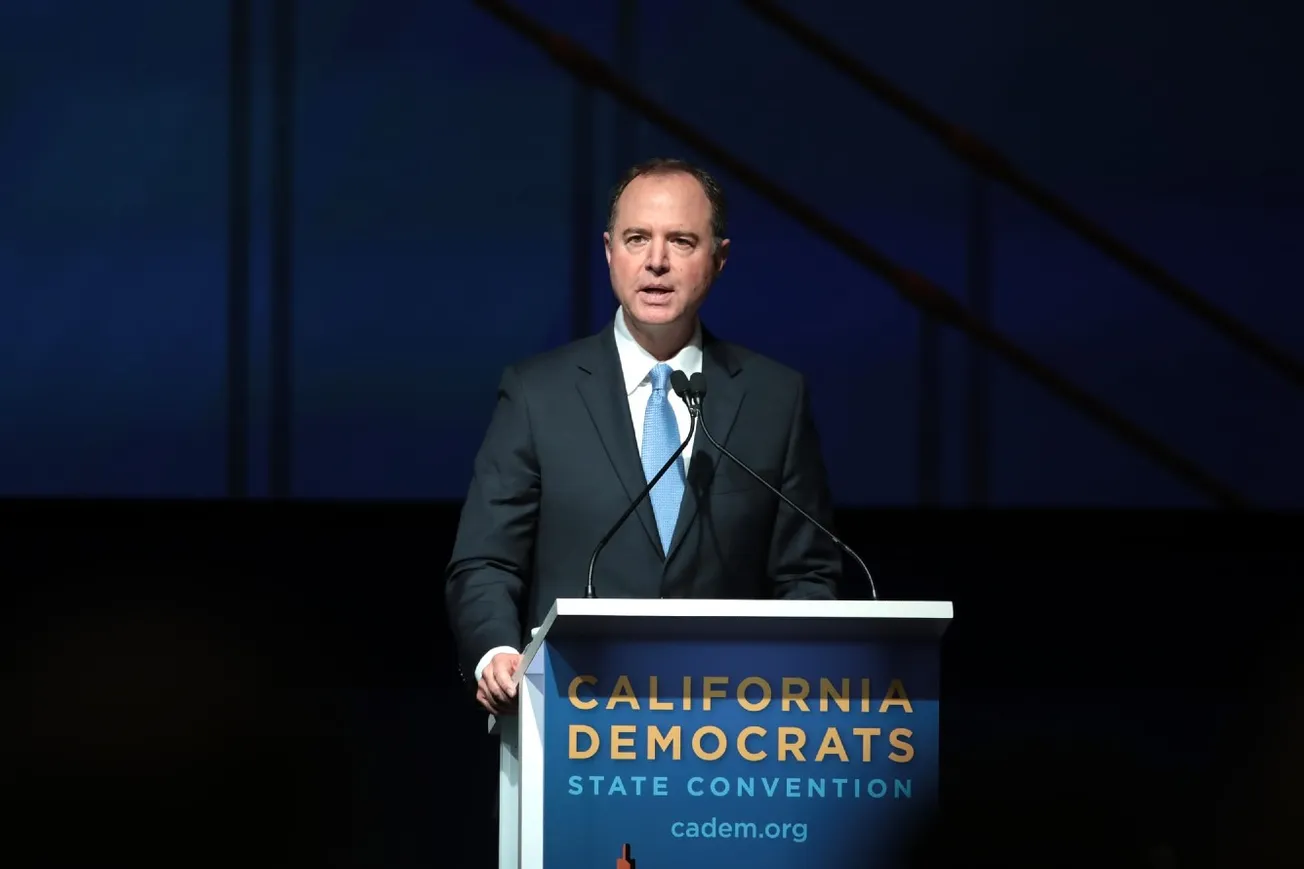Virginia Woolf, the English writer who pioneered the stream of consciousness as a narrative device wisely stated in her 1929 novel A Room of One's Own, "One cannot think well, love well, or sleep well if one has not dined well." No one can deny that food is a necessity, fundamental to our well-being and survival.
However, President Biden seems to be evading any discussion about the 'foodflation' crisis that has emerged under his watch. When confronted with such questions, he often deflects, attributing it to his predecessor, corporate greed, or shrinkflation. His responses are, at best, dismissive and, at worst, misleading. Even the media, seemingly biased in favor of Biden, appears reluctant to ask food-related questions and hold the president accountable.
For example, in his interview with CNN’s Erin Burnett in early May, Biden punted when asked about the 30% rise in grocery prices, saying people have more money to spend.
Here are a few hard facts Biden and his economic advisors would rather not discuss.
During the previous administration, food prices increased moderately by 9.1%. However, even though President Biden’s tenure ends on January 20 next year, we've already witnessed a staggering surge of 21.3% in food prices. This stark contrast is not just a statistic; it's a reality reflected in every household budget, making it harder for families to put food on the table.
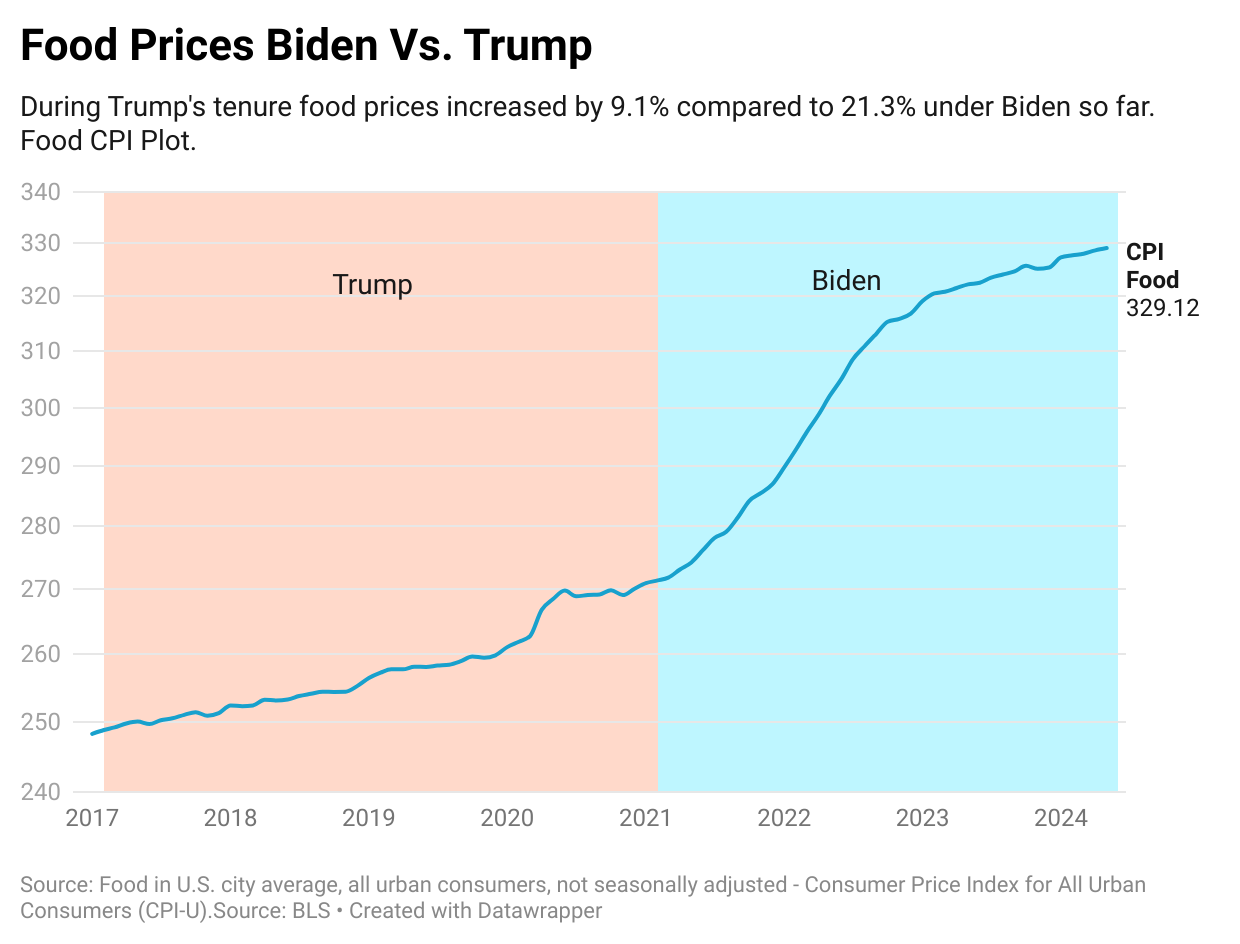
Prices of cereals and bakery products climbed by 4.6% during Trump's term, whereas they surged by 25.6% under Biden's administration.
The previous administration saw a 9.7% increase in meats, poultry, fish, and eggs prices. However, these prices have skyrocketed under President Biden, jumping by a significant 21.3%.
Dairy and related products experienced a 4.5% increase during Trump's presidency, while the increase is already 15.8% under Biden.
The cost of nonalcoholic beverages and beverage materials increased by 6.3% under Trump versus a 21.7% rise during Biden's term.
Dining out became 12.7% more expensive under Trump, compared to a 22.1% hike under Biden. The chart below illustrates these key categories.
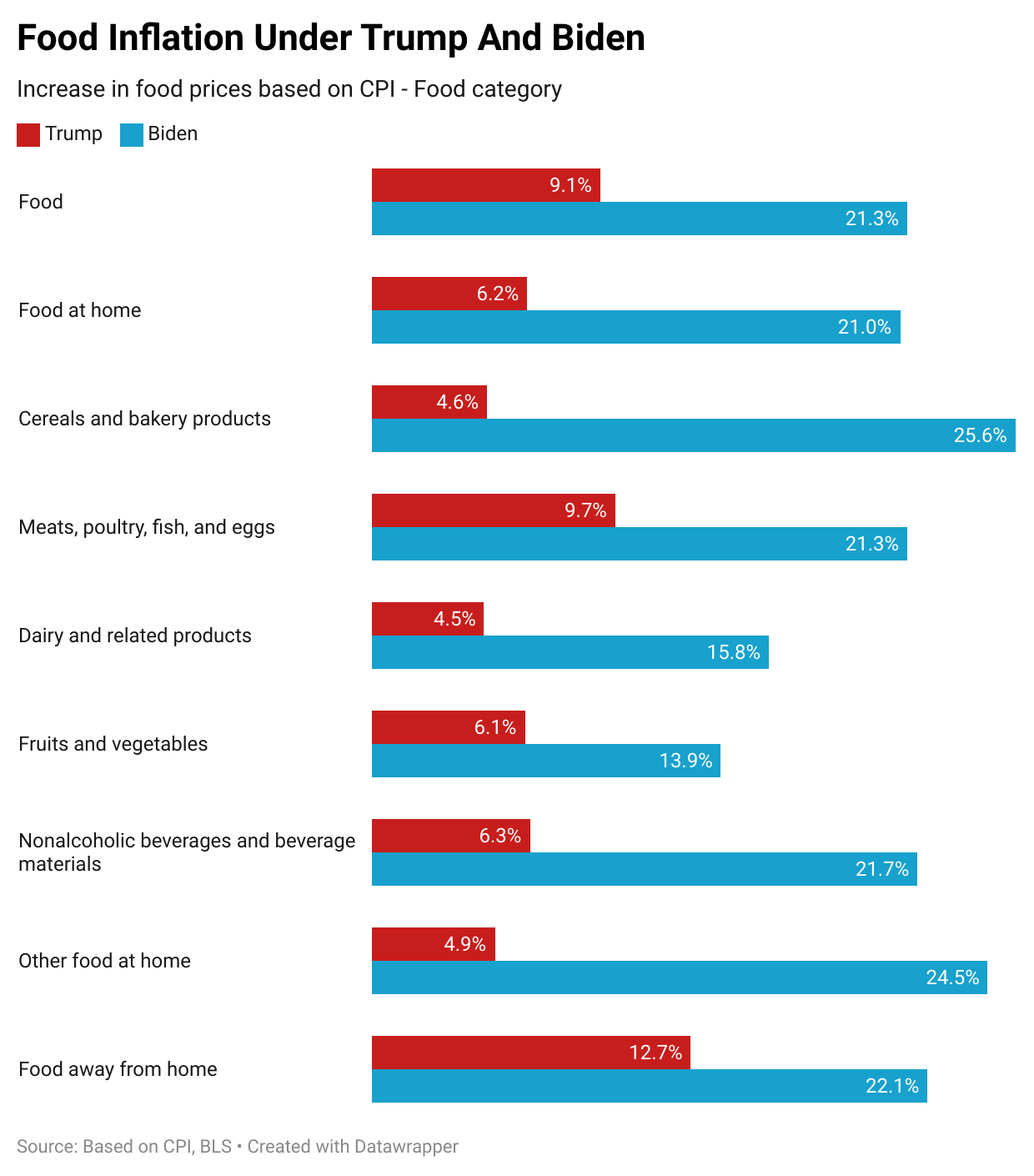
Each month, the TIPP Poll presents a list of 21 economic issues to Americans and asks them to pick the top three issues on their minds. The table below shows the percentage of Americans who chose "Food prices" as a top-three issue. Of the 50 demographic groups presented in the table, 41 had at least 40% expressing concern about high food prices, while nine had below 40%.

Here are the seven demographic groups reporting the highest percentages from the table:
- Under $30K (49%)
- White women (49%)
- Northeast (48%)
- Non-investors (48%)
- Swing state (48%)
- Boomers (48%)
- Catholics (48%)
About half, 49%, of Americans with incomes under $30K and white women are concerned about food prices. Five demographics are at the next level of 48%: Northeast, non-investors, swing state residents, baby boomers, and Catholics.
Each month, the TIPP poll asks Americans: How are you dealing with higher food costs? We present 12 answer choices and let respondents pick all that apply to them.
We studied how the seven segments most concerned about food deal with higher food costs; the results are presented in the table below.
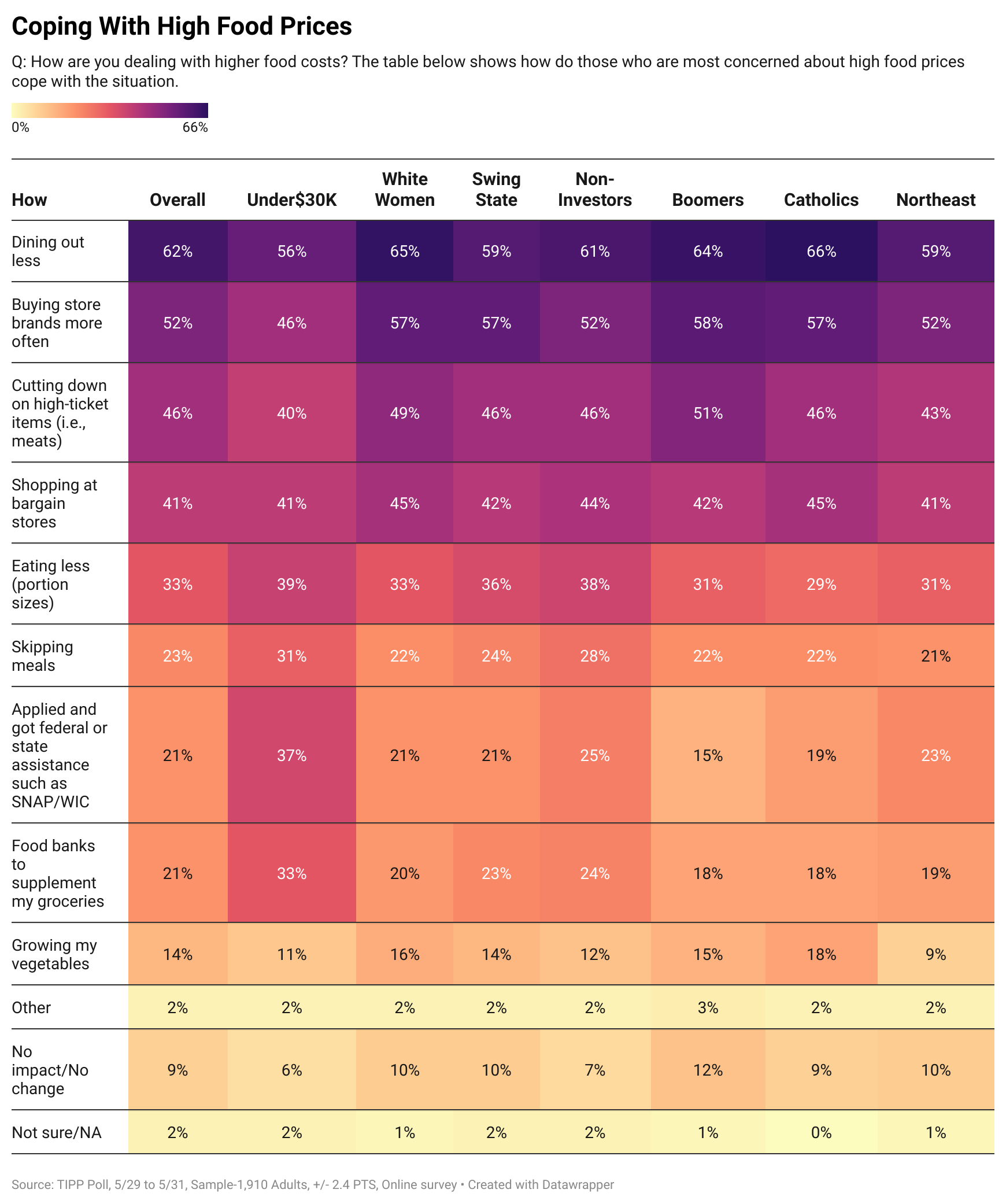
Americans are coping with high food prices by dining out less (62%), buying store brands more often (52%), cutting down on high-priced items like meats (46%), shopping at bargain stores (41%), eating smaller portions (33%), and skipping meals (23%). Some have sought federal or state assistance, such as SNAP/WIC (21%), visited food banks (21%), and even started growing their vegetables (14%).
Notice that 31% of households with incomes under $30K skip meals, and a similar share (33%) of them rely on food banks in the richest country in the world.
Further, skipping meals is common in one-fifth of concerned households.
Does hunger matter? And will it impact the coming presidential election?
To answer that question, we looked at the presidential preferences of these groups. Of the seven groups with high food concerns, Trump leads in five, while Biden leads in two.
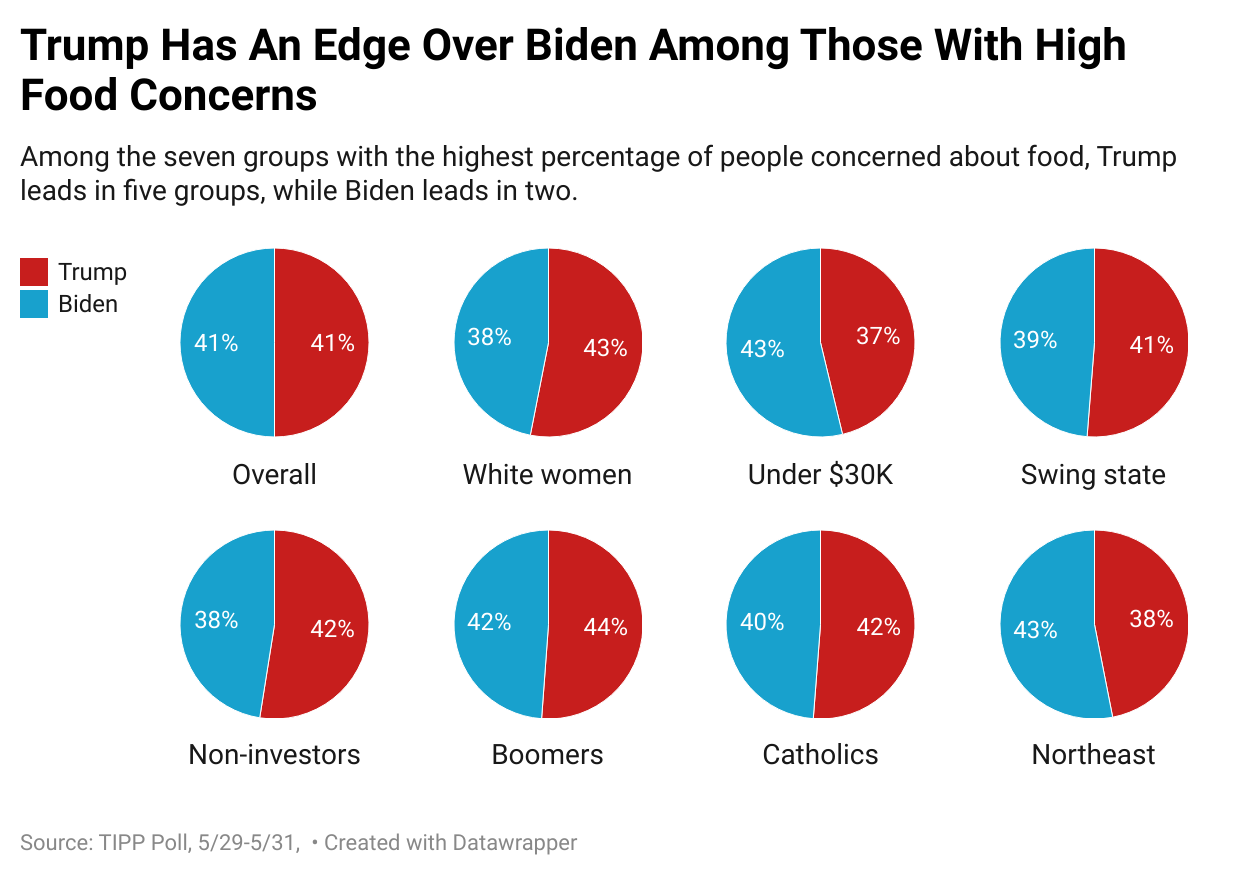
The impact of food prices on the coming elections makes Democrats nervous. Sen. Elizabeth Warren, D-Mass., and Rep. James McGovern, D-Mass., recently wrote a letter to Biden asking the President to act. Signing the document were 37 other Democrats and Sen. Bernie Sanders, I-Vt. They wrote:
The federal government should use every possible tool to lower food prices. We believe you can exercise your executive authority to take additional action to address rising food prices without congressional action. Americans are facing sky-high food prices, caused by excessive price gouging by food and grocery giants.
President Biden must stop diverting blame and take responsibility. Every visit to the grocery store reminds Americans of his failure. Make no mistake: the food issue is more crucial to the President's reelection than the felonization of his opponent. President Biden diminishes his chances of reelection each time he deflects blame and talks down to Americans.

